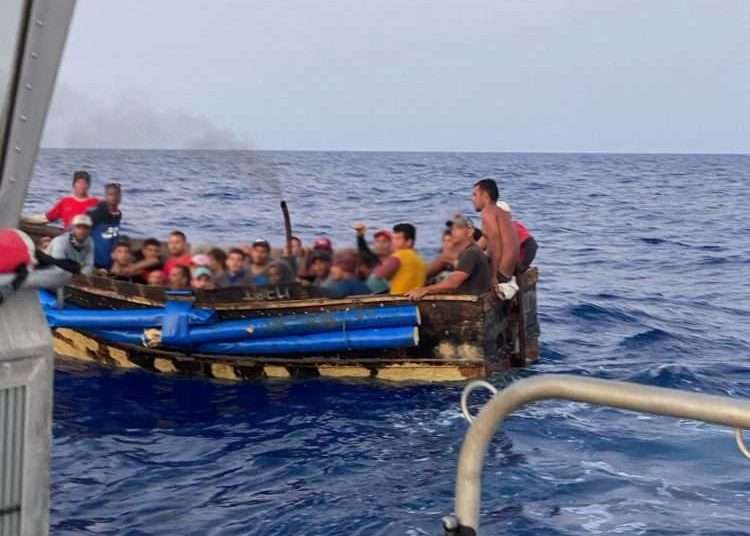The United States Coast Guard intercepted 4,076 Cuban rafters between October 1 and December 31, 2022, according to data from the entity itself.
In this way, in just three months of the current fiscal year, more than half the number of rafters captured in the entire previous fiscal year, between October 2021 and September 2022, has already been intercepted by U.S. ships.
During that period, the number of Cuban migrants intercepted by the Coast Guard amounted to 6,182, a figure that is significantly higher than the 838 of the fiscal year 2021, and the barely 49 of the fiscal year 2020.
This confirms the growing flow of irregular migrants from Cuba to the United States through the waters of the Straits of Florida, a phenomenon parallel to the massive migratory wave of Cubans trying to reach U.S. territory through Central America.
This Saturday, on the last day of 2022, the U.S. authorities carried out the last return of the year of rafters intercepted at sea, under the agreements in force between the two countries.
BREAKING: @USCG Cutter Richard Etheridge's crew repatriated 80 Cubans to #Cuba, Saturday. #DontTakeToTheSea
"These voyages are not only illegal, but also incredibly dangerous.” – Petty Officer 3rd Class Ryan Estrada
Read: https://t.co/AaV2PmkRdz@USEmbCuba pic.twitter.com/FpOjxCIjEb
— USCGSoutheast (@USCGSoutheast) December 31, 2022
This time there were 80 repatriated migrants aboard the Richard Etheridge Coast Guard cutter. The same had been intercepted this week in several operations near the coast of Florida, according to what was notified by the Coast Guard.
“These voyages are not only illegal but also incredibly dangerous,” said Petty Officer 3rd Class Ryan Estrada of the Coast Guard’s Seventh District.
He added that sea and weather conditions can change at any time and cost people their lives.
The Cuban authorities point to the Cuban Adjustment Act as a reason for its citizens to try to reach U.S. soil irregularly, by land or sea. This regulation allows access to permanent residence to those who remain at least one year in its territory.
To this should be added the serious economic crisis that the country is experiencing, exacerbated by the COVID-19 pandemic, U.S. sanctions, and internal difficulties and inefficiencies, a situation that motivates many people to leave the island in search of better living conditions.










